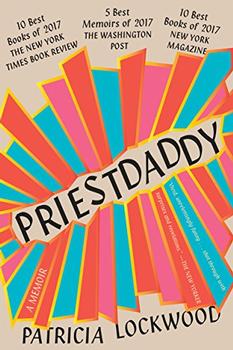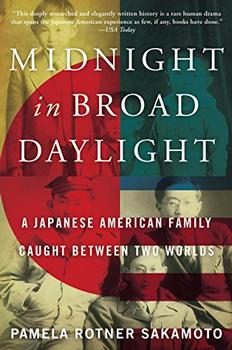Summary | Excerpt | Reviews | Beyond the book | Read-Alikes | Genres & Themes | Author Bio

In her notable debut, Keggie Carew examines the life of her father Tom, a decorated war hero whose multitude of talents did not include the skills needed to handle civilian life or keep a family together. Yet even in his waning years, his personal magnetism impelled his daughter to explain and affirm him.
Tom Carew, born in Ireland, a British military man when World War II broke out, became part of an elite team called the Jedburghs, backed by both British and American intelligence services. The Jeds were trained in guerilla warfare, assigned to aid the allies and confound the enemy in whatever way possible. Keggie once asked her father about his work as a Special Operations Executive with the Jeds, making mention of the distinguished Croix de Guerre he'd received for his service. He scoffed offhandedly, "Those? They came down with the rations!"—as if to say that such awards were common and of little significance.
As part of his duties, Carew went to Burma, where the British were attempting to wrest back control of the country by helping the Burmese oust the Japanese. Tom Carew felt a kinship with the Burmese in their struggle for independence because of his Irish heritage; that set him apart from British military personnel who assumed that after the Japanese were banished, the Burmese people would remain docile under the British colonial system. Carew frequently met with General Aung San who would later spearhead Burma's independence from the British, and whose daughter, Aung San Suu Kyi, became head of the Burmese government in 2015 after being a political prisoner for the majority of the two decades leading up to 2010.
After the war, Carew continued to work for the military as a trainer. He met and married his second wife, Jane, with whom he had four children including Keggie. Jane was an aristocrat whose highborn notions, such as that her two sons must go to the finest boarding schools, quickly ran afoul of Tom's apparent inability to cope with the tedium of ordinary employment. His impecunious ways drove Jane to drugs, rages, and ultimately to confinement in a mental institution. Keggie's depictions of her mother's descent into violent, destructive frenzies comprise an especially harrowing segment of this revealing family saga. The author spent her early adult years rebelling against her dysfunctional childhood and making an independent life for herself as a mixed media artist. Later, though, she reconciled with her mother, and to give her father his due, has composed this paean to his bravery and charm.
Told in non-sequential episodes, Carew's book can at times be tough to follow. Her prose veers from long-winded angry riffs expressing her frustration at her father's evident deficiencies, to eloquent, admiration-soaked musings about him as he fast fades into dementia: "Sometimes I think, Time's nearly up, Dad, then I notice the shine in his silver hair and know time isn't up at all." Undoubtedly heartfelt, this is a well-researched portrait. Carew has pored through military records, old family diaries and letters in constructing this study of a man so well-regarded he was once given the nickname "Lawrence of Burma," but who was sadly lacking in a few critical parenting skills.
Poignant, gently amusing vignettes of Tom in his late eighties, gradually slipping away into sadness, confusion, irrationality and occasional whimsy, are scattered among the recollections about his younger, more confident self. Keggie acknowledges that in searching for the various truths about Tom, she is looking for herself, a not surprising quest for someone whose childhood was tumultuous and whose parents were so often at odds. She sagely observes, "As Dad was losing his past to dementia, I was trying to retrieve it." As she wraps up the last detail of Tom's story—the disposition of the ashes she had been keeping in a tea tin—we feel she has accomplished her purpose.
Dadland is the satisfying story of an unusual father—daring in war, inept in peace, but even in the fog of dementia, indisputably charming—told by an at times frustrated but always admiring daughter.
![]() This review was originally published in The BookBrowse Review in March 2017, and has been updated for the
April 2018 edition.
Click here to go to this issue.
This review was originally published in The BookBrowse Review in March 2017, and has been updated for the
April 2018 edition.
Click here to go to this issue.

If you liked Dadland, try these:

by Patricia Lockwood
Published 2018
From Patricia Lockwood - a writer acclaimed for her wildly original voice - a vivid, heartbreakingly funny memoir about having a married Catholic priest for a father.

by Pamela Rotner Sakamoto
Published 2017
Alternating between American and Japanese perspectives, Midnight in Broad Daylight provides a fresh look at the dropping of the first atomic bomb.
Your guide toexceptional books
BookBrowse seeks out and recommends the best in contemporary fiction and nonfiction—books that not only engage and entertain but also deepen our understanding of ourselves and the world around us.